If you want to help your daughter in an abusive relationship, Anne’s mother and sister share how they could have helped her.
If you feel like this emotional abuse quiz could help her, have her take this free emotional abuse quiz. Discover if she is experiencing any one of the 19 types of emotional abuse.
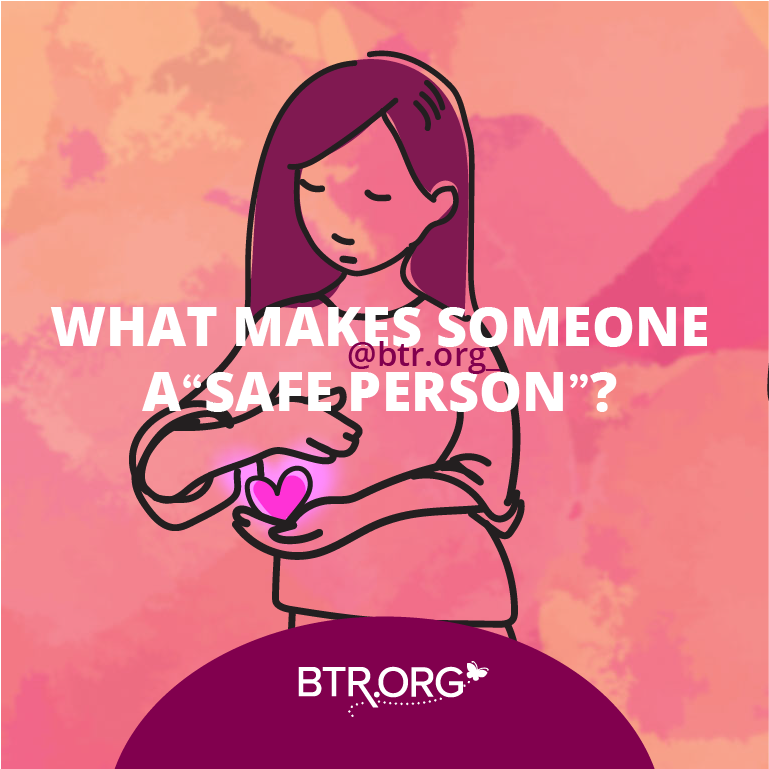
1. Help Your Daughter Identify The Abuse
“I described my husband’s behavior, physically intimidating me, yelling in my face, manipulating me, gaslighting me, and unsafe behavior by him. But even then, I didn’t realize I was in an abusive relationship.”
Tragically, emotional abuse is difficult to identify for both victims and their support systems. As family and friends honestly and authentically communicate with the victim about their concerns, victims may identify the abuse quicker and take appropriate actions to get to safety.
2. Help Your Daughter In An Abusive Relationship By Taking Her Seriously
When family and friends minimize the abuse, they are re-traumatizing victims.
Anne’s sister shared, “Anne would call and say there’d been a fight. I would often say things like: everyone has problems in their marriage, or I’d try to downplay it. I was trying to normalize maybe what had happened or relate to it in some way. But that only made things worse for her.”
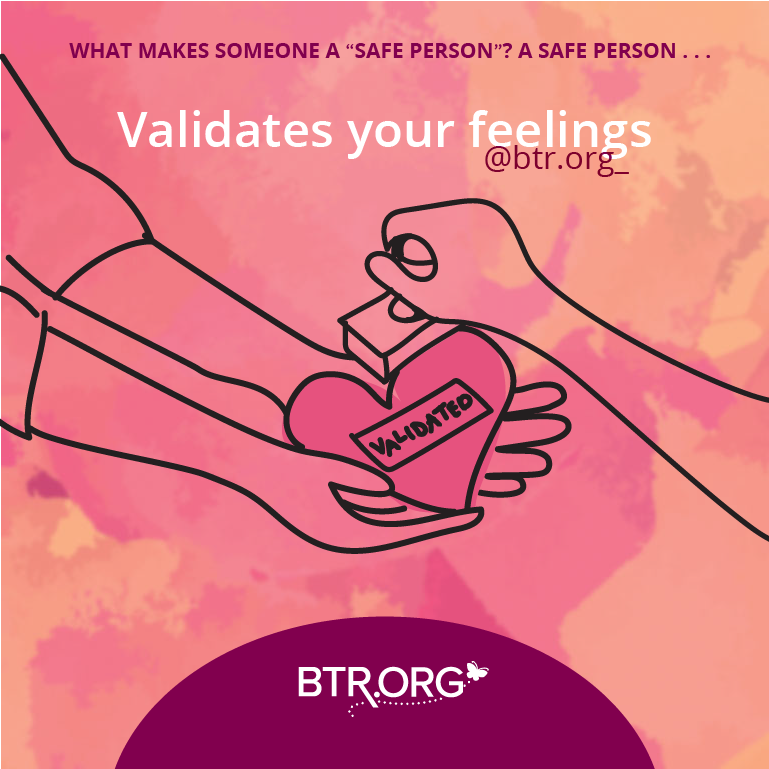
Minimizing Abuse Looks Like This
Wondering what forms the minimization of abuse takes? Here are some things that family and friends may say minimize and/or justify abuse:
- Everyone has their problems
- What did you do to make him act like that?
- Are you sure you’re not exaggerating?
- Everyone gets angry now and then
- Choose your love and love your choice
- Don’t nag about your husband – it’s not right
- We all know he has a temper, but that’s just how he is
- Think about your kids – don’t separate or divorce or they’ll have a broken home
3. Help Your Daughter By Validating Her
Offer your daughter support. Listening, believing, and offering support are powerful ways to validate a victim’s experiences. Let her know she’s not alone. Tell her about daily Betrayal Trauma Recovery Group Sessions.
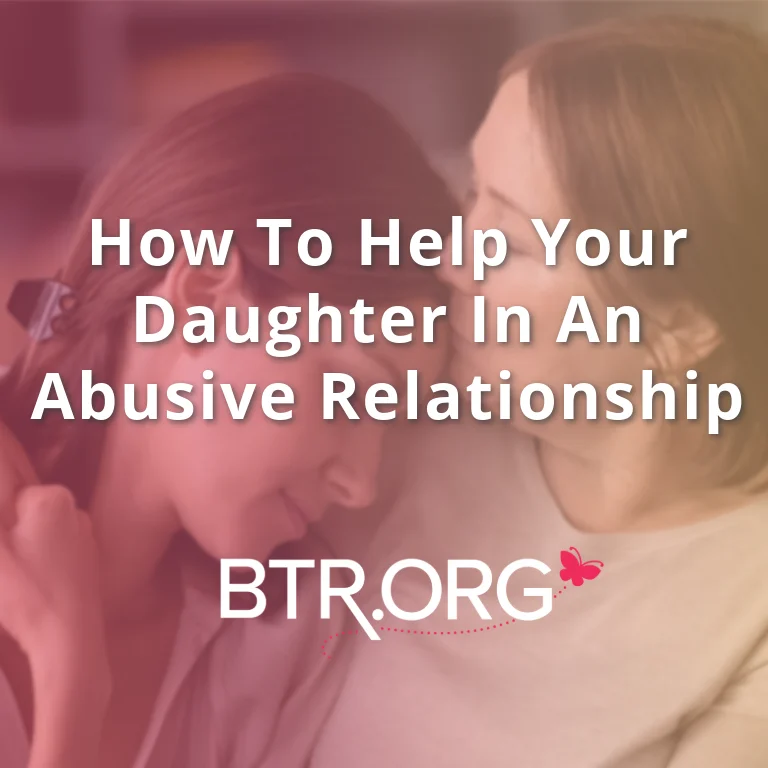
Transcript: How To Help Your Daughter In An Abusive Relationship
Anne: Today, I have my mom and sister, who we will call mom and sister. Say hi, guys.
Anne’s Sister: Hello
Anne’s Mom: Hi
Anne: They will talk about their experience supporting me or not supporting me through what happened. Many of you asked how to talk to your friends and family about what’s happening to you. When I was married, I would call you with concerns and tell you what was going on. Because the whole time I was honest about what was happening, how would you react before you knew it was abuse, and what types of advice would you give? So, let’s start with my sister.
Anne’s Sister: So, I remember many times Anne called and said there had been a fight, and that things had gotten out of hand, and that terrible things had happened. And I would often say everyone has problems in their marriage, or try to try to normalize maybe what had happened. Or relate to it in some way. I didn’t realize it was outside what should be happening, I guess. I didn’t know how to recognize victim blaming in myself.
Anne: Mom?
Anne’s Mom: That’s the same with me. Sometimes you’d call me like at 2 or 3 in the morning, and you’d say he’s running outside in his underwear, and I’d think, that’s really odd. Why is he doing that? What would possess him to do that? So, there were some odd things that you would say he had done, or some things that happened that I knew were odd. Of course, I didn’t know how to my daughter in an abusive marriage.
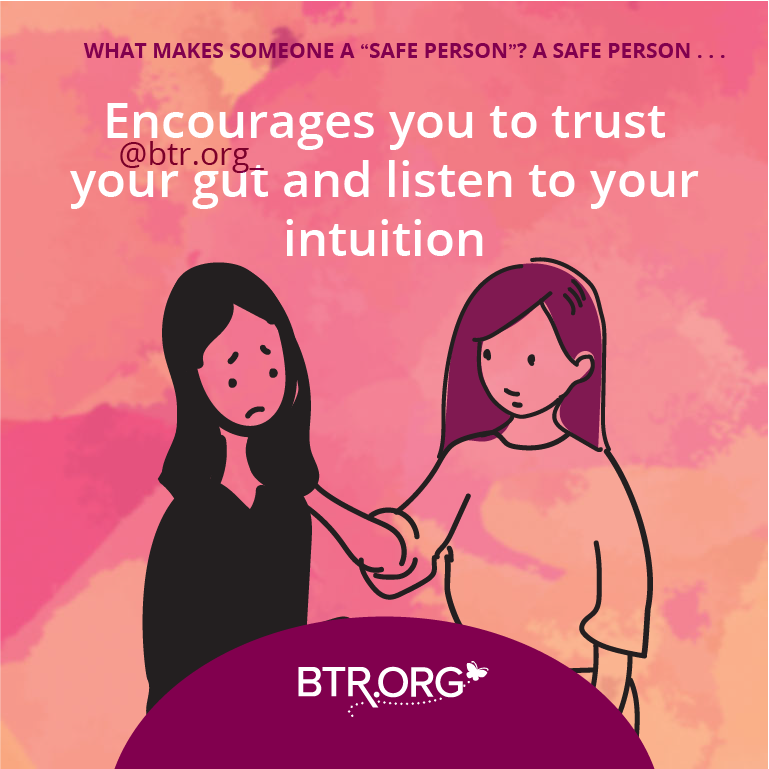
Understanding Abuse: A Learning Curve
Anne’s Mom: I just thought, well, maybe that’s what he’s like. Maybe he’s just that way, and I probably advised you. I don’t remember the exact words I said, but I think I remember something like, well, how do you think you should handle that? What do you want to do? Maybe you could do something that would lessen that reaction. I don’t know if I said those things, but that’s what I think I would say. I had no thoughts of my daughter actually being in an abusive relationship.
Anne: Yeah, you guys were both super supportive. It’s not like you ever told me to do something I didn’t want to do. Like, I would tell you what had happened, and you’d be like, that’s weird, but this is probably the reason, or I wonder what the reason is. It was like we were all confused, but tried to give him the benefit of the doubt. This is also something to consider when helping your daughter avoid teenage abuse.
Anne’s Sister: The biggest mistake I think I made is that I said things like, what did you do to start the problem? Or maybe next time this happens, you could do this. Not understanding it had literally nothing to do with what you were doing, or how abuse works. Thinking that if you reacted differently, or if something’s changed, then he would no longer react this way. Just totally misunderstanding, because I had no idea how it worked, or that this was abuse. So I didn’t know.
Anne: Yeah, why did you think you didn’t see it as abuse at the time? I mean, I told you about his exploitative materials use, so you guys knew that this use was happening.
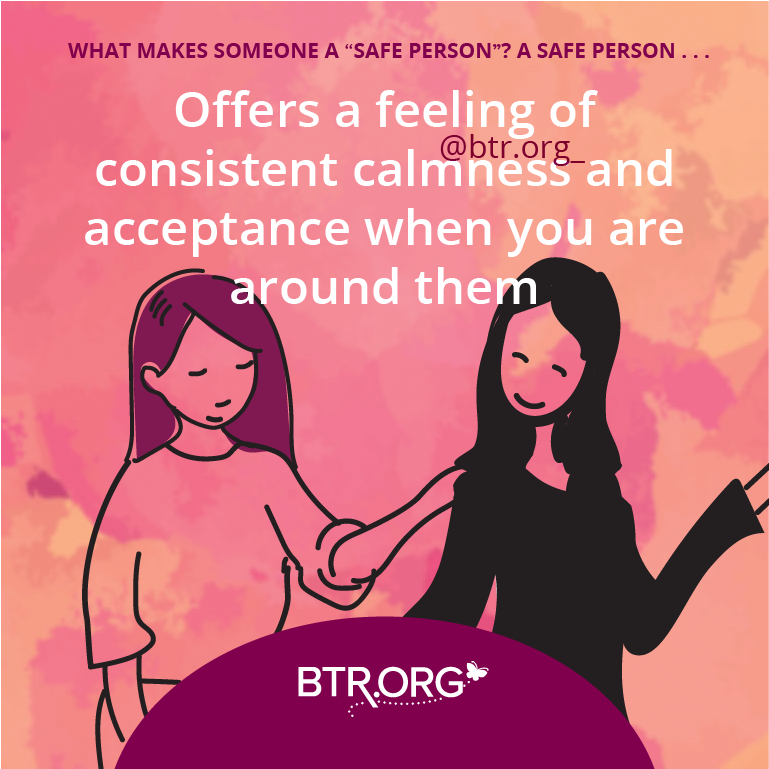
The Role Of Pornography & Anger Issues
Anne: And that was my biggest complaint, or was it? I mean, maybe it wasn’t. I think we talked about the exploitative material and anger. From my viewpoint at the time, I thought they were the same thing. And if you got the use under control. Then the, I don’t remember if I told you that, but why do you think you didn’t see it as abuse at the time?
Anne’s Mom: I think the reason why I didn’t think it was abuse is that I knew your husband had an anger problem. You had told me he had those problems, and he spoke publicly about those problems, the use, and the anger issues. But I thought he had “anger issues,” and he was working on them. In fact, I tended your little baby for three days. While he went to the foremost nationwide anger conference that he seemed excited about and thrilled about.
And so I thought he was doing all that he possibly could, and that he was just having a hard time managing that. I had not a clue that my daughter is in an abusive relationship. And that these were occasional outbursts that needed to somehow be allowed for.
Anne: Right, because he was “working on it.”
Anne: We were being patient with him as he did that. Rather than realizing Oh, she’s being abused right now.
Anne’s Mom: That’s true, and I hadn’t learned much about boundaries. Even though I have used them in my life, I was not thinking in those terms. I wasn’t thinking she needs to set boundaries.
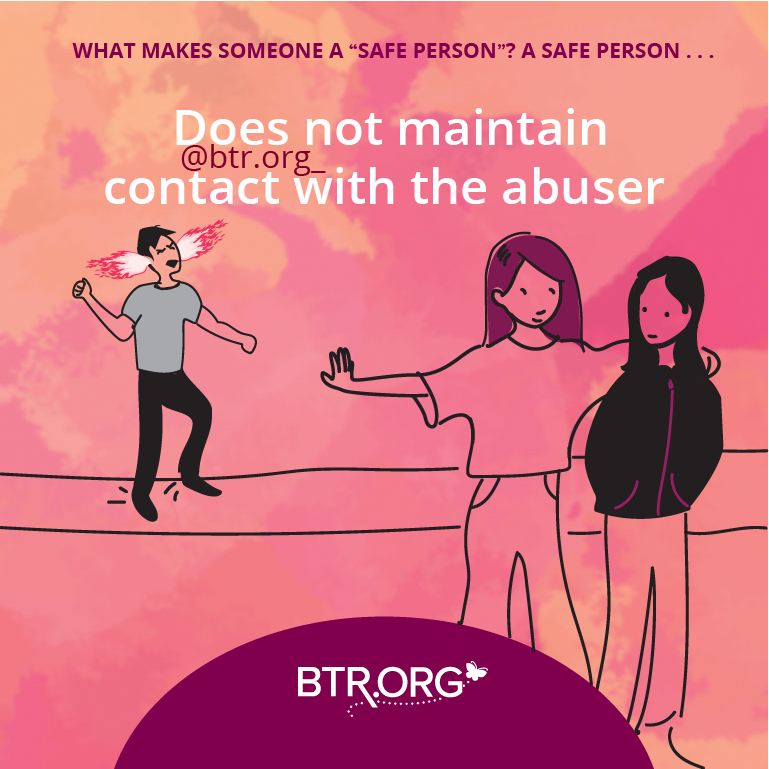
Anne: You need to be safe now. Like you’re not safe in this moment.
Anne’s Sister: I misunderstood what abuse is and what it looks like. Ignorance about what abuse is, was the main problem.
Recognizing That my Daughter Is In An Abusive Relationship
Because we used to call it his time of the month, because about once a month you would call. And some crazy thing had happened. But the rest of the time he was great, so we’d say, oh I guess it was just his time of the month. I didn’t understand emotional abuse and that it’s not that someone’s always terrible to be around.
Anne: What you were seeing, that you didn’t know you were seeing, was the abuse cycle.
Anne: I didn’t know it was abuse either, at the time, so we were all in the dark. If you could go back in time, what would you do now, or what types of advice would you give people in that stage now?
Anne’s Mom: Allow them to talk and listen to what they had to say, what they thought about it. And how they felt about it. Everybody gets angry from time to time. That’s not abusive, but there’s a line that people really cannot go over, which is hard to determine when you’re in that situation.
And so, if they were feeling unsafe, that’s a real red flag. Is my daughter in an abusive relationship? If they were feeling threatened, unsafe, intimidated, forced, those kinds of things would be a real concern. And I think maybe at this point in time, once I’d listened to them and tried to understand exactly what was happening. I would suggest they get safe somehow. And then revisit it and think through it. Process what was actually happening.
Anne: People would ask me, do you feel safe? And I would say yes. Because I didn’t think he would hit me. One of the things might be like, do you feel emotionally safe, right?
Identifying Abuse & Seeking Help
Anne: Do you feel supported? Do you feel loved, cherished and cared about?
Anne’s Mom: Maybe, but then you were also saying he was shoving you up against the wall. He was spitting, yelling and screaming in your face. So those kinds of things are not safe.
Anne: No
Anne’s Mom: But you said you felt safe. My daughter being in abusive relationship wasn’t on my radar.
Anne: I know. I just read an article on CNN about one of the Larry Nassar victims, and didn’t see herself as a victim for two years. It took her a long time to figure out that she was actually a victim of his abuse, and she defended him for a while. Abuse victims, we don’t see it.
I remember telling the clergy and therapists that I felt safe, and telling you that. At the same time, I remember saying, if I go missing, it’s him. For victims, if we focus on emotional safety first, rather than physical safety. It might be a little easier to determine. There was so much I didn’t know about an abusive husband’s therapist.
Anne’s Sister: I think helping the person identify that it’s abuse is a big deal. Because I remember the first time you identified some of his behaviors as domestic violence. And before then, they hadn’t encouraged you that’s what was happening. Or you’re continuing to try to say why it’s not abuse. So I would try to help them notice that without being too forceful.
Anne: Yeah, because if they don’t think they’re being abused, it makes it difficult.
Her Husband’s Arrest & Realizing My Daughter Is In An Abusive Marriage
Anne’s Sister: Right, and then also to try to get them to a professional who knows more about it than I do. And get them some help, because I don’t know what I’m talking about.
Anne: So well, now we have Betrayal Trauma Recovery. Now you can send them here, but before we didn’t have that. So it was hard, because betrayal trauma is a form of insidious abuse that can lead to physical violence. It’s scary.
Anne’s Mom: The other thing about that is that even though you’d seen that counselor, it wasn’t until after he was arrested.
Anne: Which was a month later.
Anne’s Mom: Yes, and we were sent to Safe Harbor for battered women. They recommended we read a book. And once we read that, it was like, whoa, this is abuse. The realization that my daughter is in an abusive relationship was devastating. It was check, check, check. Maybe some more traditional things weren’t there, like isolation. But he was physically intimidating, and he was violent in a way that didn’t show marks, I guess.
Anne: It did on my walls. I had holes in my walls, and then the last time I had the bruises on my butt and my hand was sprained.
Anne’s Mom: Yes, and it was interesting because we thought he was getting better. We thought he was working on it, but looking over time, he was actually getting worse. The thing that was helpful to me was once I identified it as abuse, and once I gave the book to you, Mom, and you read it. You believed me.
Anne’s Mom: Yes.
Anne’s Sister: Yeah.
Anne: So at that point, it wasn’t like, no, no, no, you are overreacting. Both of you were like, oh, this explains it.
How To Support Someone After Abuse Is Identified
Anne: For friends and family: when she identifies the abuse, don’t talk her out of it. Don’t be like, no, no, no. If he’s abusive, yikes, you might have to get divorced, or this is serious. I think many clergy, friends and family try to talk someone out of it. The consequences are so extreme.
Anne’s Sister: That’s exactly what I think my main problem was. I was looking at it from a perspective of, let’s save this, let’s not let it go out of control. Thinking that the best possible thing would be to stay together, with no idea that abuse was happening. So, my advice was always based on the idea that let’s work this out. It can’t be that bad, because it needs to work out. Giving advice based on saving the relationship. It’s more important to stay safe, totally.
Anne’s Mom: It’s also more important for the abuser because when they are faced with what they’re doing and the consequences of those actions, it could possibly be a motivation for change.
Anne: Right, in my case, he hasn’t changed yet. He’s continuing to lie, and that’s sad. So I have to continue to hold boundaries. Let’s talk about when I called both of you and told you that he screamed in my face and spit in my face. Do you guys remember this?
Anne’s Mom: Yes.
Anne’s Sister: At least a few times, which time?
Anne: We’ve talked about general things that you would do.
Anne’s Mom: He wasn’t spitting in your face as just a spit. It was because he was so close, and he was yelling and screaming, that spit flew from his mouth into your face. I was witnessing my daughter being in an abusive relationship.
What To Do In Acute Situations
Anne: Yeah, and he was like bright red and was also saying awful things.
Anne’s Mom: And he is much larger, and stronger, and looming over you, or pushing you up against a wall.
Anne: And it was scary. Yeah, so in an acute situation like that, what would you say now? If I call and say this happened ten minutes ago? I’m freaking out, what should I do? For listeners who are like, okay, I want my mom and my sister to hear this. What do you think would have been the right thing to do in that particular, specific situation?
Anne’s Sister: I’m on my way over, right now. I’m in the car, I’m on my way over, you need another adult there, to either say we’re packing up and getting out of the house or you just need some support. You need a witness to have someone there so that your loved one feels safe.
Anne’s Mom: Now that we’ve done the Safe Harbor thing, now that we’ve read, now that we understand a little more. Any time now when there’s a slightest amount of abuse or escalation, I would also advise you to get out of there. Leave if you possibly can, because it’s not safe, and you should not be there if that’s happening.
Anne: The best case scenario for women is that they stay in their homes, and that the abuser leaves. So, sister’s recommendation, like, I will be there if you’re within driving distance. Like, get there and he needs to leave, you’re gonna need some backup. Clergy, family, friends, to get him out of the house. Because in my situation, he refused to leave.
Updating Advice For A Daughter In An Abusive Relationship
Anne: I asked him to, and he refused. It wasn’t until he sprained my fingers and the police forced him to leave that he actually left.
Current Day Anne: This is the current day, and I’m interjecting here. We recorded this episode years ago. The advice I gave next was not accurate. And so I’m replacing it with saying that since then, I’ve learned safety strategies that I would now recommend. And I’ve written them all in The Betrayal Trauma Recovery Living Free Workshop. While I edit this bad advice so nobody hears it, I don’t want anyone harmed by my process of learning what to do.
Anne: That, I think, is good. I started doing Grey Rock, and it got worse. I just started being like, no, yes, and try not to talk to him. And it got worse, because he was like, why aren’t you talking to me? Why aren’t you reacting like you used to? And that kind of made things worse. So, we’re just gonna conclude now with some tips that you might have for any woman who is married to a user. After what you’ve seen me go through, being a daughter in an abusive relationship.
Concluding Tips For Women Married To exploitative material Users
Anne’s Sister: I think the first one is don’t underestimate the amount of abuse happening and obviously you talk about this extensively on the podcast.
Anne’s Mom: Yes, I agree. Support them by believing them and listening to them. Also, by being there for them if they need babysitting, whatever they might need, be there for them and with them. Sometimes family members of a daughter in an abusive marriage want to save the marriage, and they don’t know who to believe.
Do you believe the user who lied about this, and this, and this? Or do you think the person that’s the spouse, if they’re lying about what he might have been doing, to get back at him? Those kinds of traps that we fall into. Who is the liar there? What is the basis for thinking that the person being lied to is the liar?
The term DARVO, where the person who is the offender actually gaslights the other person and accuses them of lying. Accusing them of doing all these things. Accusing them of setting them up for arrest, who knows what, all these things. So how do you determine who is the liar and who isn’t?
You can see it. And we could look back and see it. But at the time where we were far away and we were on the phone and we felt like the marriage was more important, then it was hard to really see that he’s lying.
Anne: Yeah.
Understanding DARVO & Gaslighting
Anne: Darvo is where they deny and then attack, and then reverse the victim and offender role. Which is exactly what happened in my situation. Now he feels like he’s the victim. And that everything I did to keep me safe from him, he says what’s going on is attacking him. Rather than realizing that those are the things I needed to do to protect myself from his ongoing abuse and lies.
Anne’s Sister: So I have one more thing that I thought of to help protect from further victimization. So if they’re talking to clergy and getting bad advice, or if they’re talking to other people trying to say oh, it’s the fault of both of you.
You need to go to couples counseling to help them understand that if they get advice that makes them feel terrible about themselves, they’re at fault. Then they should not be going to that person anymore. To help them see who they can trust. Because there are many people out there who they can’t trust.
Anne: Tell her that she’s strong, brave, and doing a good job. Don’t undermine her by saying, well, maybe you could be doing this and maybe you could be doing that. Because that is not helpful in an abuse situation. Although we all have things we could improve on. Which my sister and mom also told me.
Final Thoughts About Having A Daughter In An Abusive Relationship
Anne’s Sister: Yes, that’s the biggest mistake I think I made. I was saying, how did you contribute to this or what could you do differently next time? Yeah, not understanding what abusive relationships look like.
Anne’s Mom: Or maybe if you did this, or maybe if you did that. But what Safe Harbor told us is that if you had been less assertive, more submissive, it would have been worse.
Anne: Yeah, yep, because he would get his way more. Yeah, but in this case, I was a terrible victim. Yes. I was the worst victim ever. I did not do what victims are supposed to do. And I know that many of you who are listening do not have supportive friends and family, and my heart goes out to you. That’s really, really difficult, and hopefully in your search for safety, you can find a safe network, people that can help you.
There are people out there. Betrayal Trauma and Recovery is a great community to find safe people. So, I’m grateful to my mom and sister for coming on today.


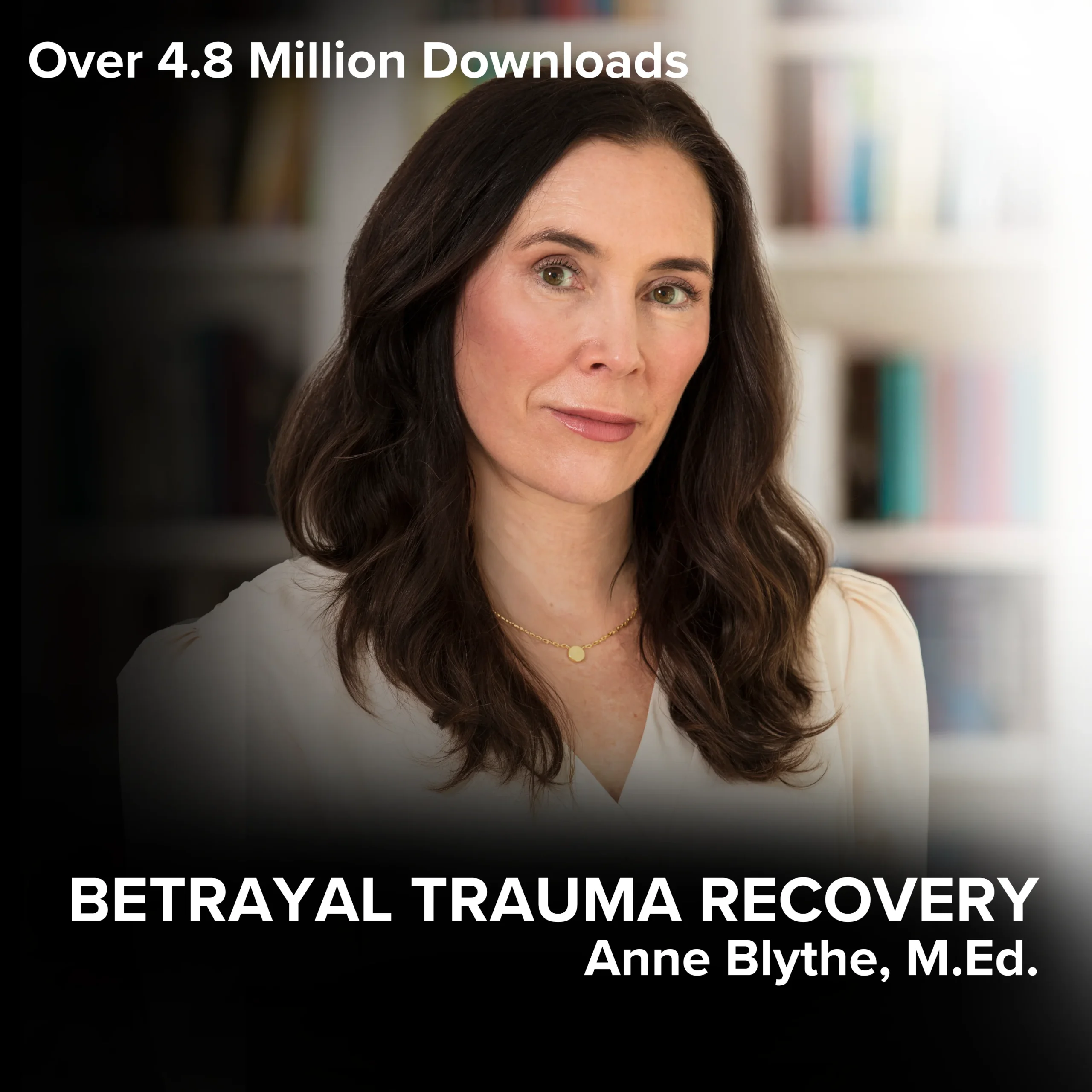

Wow! I love how clearly this is laid out for us. The suggestions on how to be an ally are spot on and appreciated. I’ll be sharing this! Thank you.
I have been through this! When I told my family I was in an emotionally abusive relationship, my family didn’t understand. It’s so hard! I’m happy for you that you have support. I just wish I did.
I was abused by my step dad growing up. My biological mother did nothing about the abuse. I reached out to extended family (maternal aunts) and they did not intervene. My aunts and extended family still have a relationship with my step dad and mother. It makes me feel me feel angry and uncomfortable to be around my extended family sometimes because of their relationship to my parents. Is this normal and what would you recommend me do about extended family members and my relationship to them?
I’m so sorry. We always recommend boundaries to separate yourself from abuse – regardless of where the abuse comes from.
We’ve been dealing with abuse in our home for over 3 years. It’s sad and not right.
Me too. I’ve tried to explain emotional abuse to my family and I’ve been told that I need to take a hard look at myself bc I am an a**hole. I have been looking at myself. I’ve been to therapy, marriage counseling (by myself), and marriage coaching. I learned how to speak differently without any criticisms or complaints and how to make requests. All of that advice is garbage.
I love how this is so blunt and to the honest true point. Thank you!!!
The abuser is the one that needs to be worked on. I wonder how many judges ,supposingly handing down decisions on these abused women are abusers themselves. My guess is 60% at least.
What is the appropriate response for family members if she goes back with the abuser?
Just support her. Tell her you love her and that she is brave. Don’t talk about the abuse, but invite her to lunch or dinner or whatever often, take her out and pay for her. Don’t judge, just support, support, support.
I’m going through this now my husband’s family is telling me to work it out and my life will be much easier. I’m getting threats of being sued now I’m a cheater and my underwear is being submitted idk it’s weird and I’m pregnant
I’m so sorry! I was also accused of cheating. It’s so hurtful!
Thank you so much for this. Not only am I able to send this without reaching to be heard, I feel validated just reading it alone. May everyone who reads this be blessed and healed.
So true on making him accountable. He is doing the damage and the only support he should get is to be made accountable for his hurtful actions. There is no pity for someone who hurts others and does not care what his actions cause in others lives. The only way to know for sure if he has changed is when it is obvious he now puts his wife first and any upset is met with understanding, repentance and that particular act never happens again.
I got out of an abusive marriage almost 25 years ago. I just found out my ex-husband has had a very cozy relationship with a few very important people in my lives, namely parents. The ones who took my pregnant self to the ER when my eardrum was broken during a beating. I don’t know how to handle this without doing more harm to myself.
A close friend died on Fri in her early 50s. She was groomed by her husband, who drugged her, abused her and had men rape her while he watched and took videos. She had been working so hard to get away; she signed divorce papers in Aug and he refused to sign. She was taking legal action etc etc. She was fragile etc etc. He hounded her.
I would like advice on this: they were involved in a particular online fandom community, and he runs one of the larger groups. Many of the friendships from this and people who know them both stemmed from these groups, initially online but expanded to face to face at fandom events etc etc but still very much online. Their drama often played out publicly in his group of about 3000 people, with him posting and deleting things about her, throwing her on and off and on again in the group often within hours. While the majority of the members didn’t see or know about a lot of this, the largely female admins, all of whom were friends with both of them, knew all about it and regularly talked about it among themselves while not once confronting him. (My friend was also displaying erratic difficult behaviour… lying sending messages etc. We all know why.)
In the end, he cut her off from the group. The women stayed as admins and moderators and as things got even more difficult with my friend, essentially walked away from her and cut off contact. They remained on the group as active participants and moderators.
Now she’s gone and I am full of fury at them. To me, by staying on in the group as admins, they continued to feed his ego, never confronting him about anything. I often heard because it’s about the group, not him. And this just grew his narcissism as he continued to abuse his wife. Which many of them still heard “rumours” about. They were enablers to his behaviour. And still haven’t commented publicly although others have and it is out there in other groups.
But these women are angry with me for calling them enablers and I do not know if there is anything I can do to make them understand their part in it.
The man who emotionally and psychologically abused me would always get sympathy because he was sick, and kept abusing me when he got better. If I dared tell anyone about it, I really feel like my family would disown me.
My abusive husband is a narcissist, and also a lawyer. He easily turned my family against me. I’ve spent all my savings trying to divorce him. It’s very hard doing this alone. I also have ptsd from my 1st divorce where my husband kidnapped our 6 yr old. That was the most painful experience of my life. I’d honestly rather lose a limb, then relive that time of my life.
My mother and father were abusive, and my siblings are all messed up. Their judging behavior during my current horrid situation is more toxic than helpful. I’m actually a bit surprised by their ignorance, I’ve always considered the women in my family to be semi progressive . . . but they’re just enablers.
My husband has been stealing my prescription pain killers for over a decade and whenever I confront him, he gaslights me and denies it. He finally admitted it when I caught him again this past time. I told my family, but they all sided with him. I want to puke. I’m all alone and since I’m disabled and unable to work /support myself financially, I am unable to leave. I just wanted to write this here as a shout into the void since I know I will die in this situation, there is no way out and no hope for me. I pray that God saves me from all of this one day.